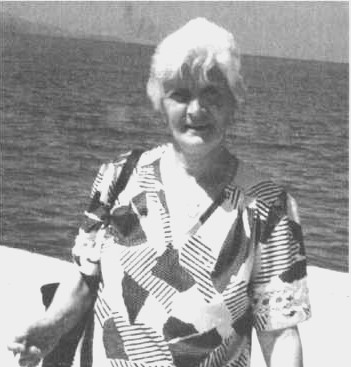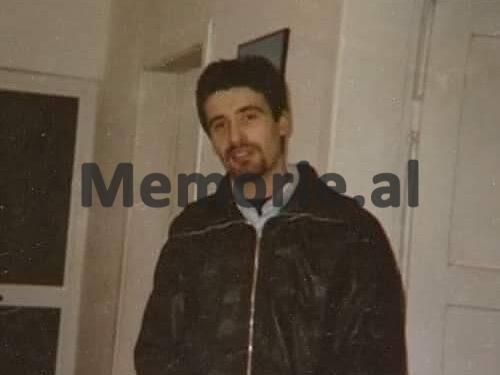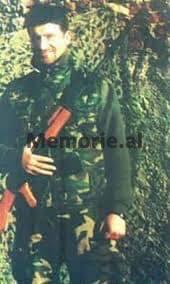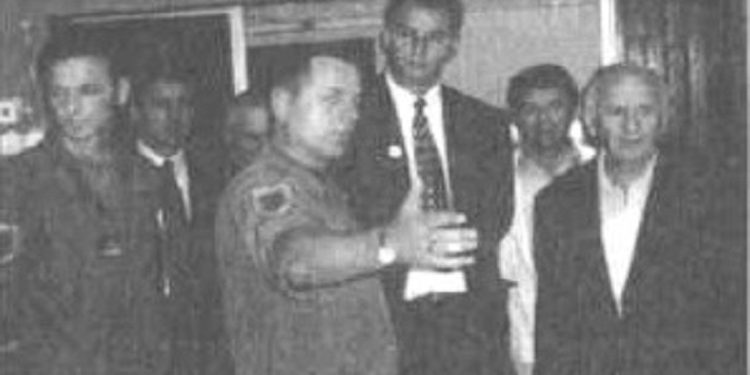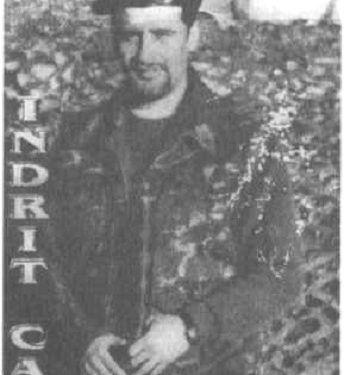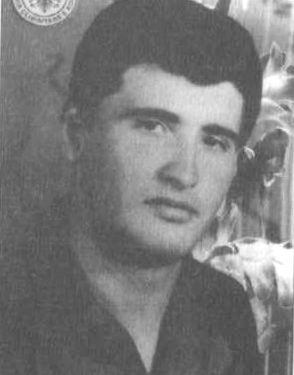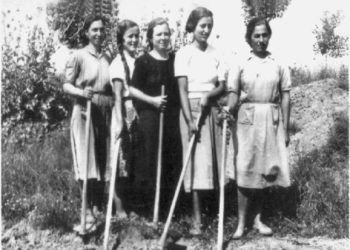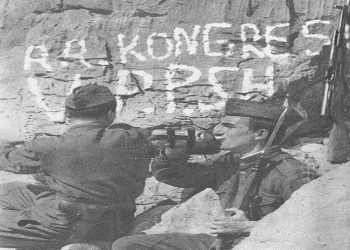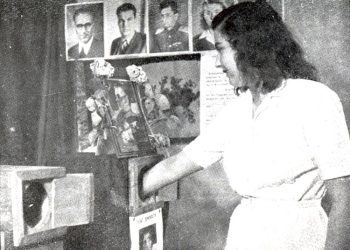From Sofika Prifti Cara
Part three
To Forgive…!
– The old family clan of Kavaja – CARA
Memorie.al publishes some excerpts from the book ‘To Forgive’ (Të falësh), authored by Ms. Sofika Prifti (Cara), published by the Institute for the Study of Crimes and Consequences of Communism in Tirana, in which the author has described in detail and with professional competence the history of one of the most prominent family clans, not only in the city of Kavaja but also beyond, the Cara clan, from which emerged not only distinguished patriots who contributed to the national cause and the freedom of Albania, but also well-known intellectuals, graduated in the West, who later returned to the homeland, contributing in several fields of science and life. But even though the scions of the Cara clan dedicated their lives to the national cause, after the communists came to power at the end of 1944, they would be persecuted, imprisoned, and interned, and the fierce class struggle would pursue them until 1990, when the collapse of the communist regime began.
Continued from the previous issue
INDRIT CARA (1971-2009)
Because everyone was deathly bored with that fierce communist system. The trains that evening departed very late from Kavaja. Indriti and Gentiani participated in many such mass gatherings, such as in the “Babanët” neighborhood, at the motor-pump, at the military unit, at the stadium, etc. He was among the most combative activists in the city until he later left for Italy, to Modugno, Bari. Amidst many difficulties, he would experience the heavy weight of emigration to England, to London.
In the British capital, he took a three-month course to learn the English language, which was mandatory for all emigrants arriving there. Later, Indriti continued a two-year higher education course in computer science, finishing it with high results and distinguished from others with Certificates of Praise and Gratitude. Upon finishing school, he worked for a time at the ‘Olivetti’ company.
In London, Indriti did various jobs and occasionally helped his family with money. During the years 1997-1998, through telephone calls with his family, he inquired about the situation in Kavaja and Kosovo and asked his parents for clarifications about the location of Drenica, Deçan, Gjakova, etc. Indriti gave them instructions as if he were an old man, to help the Kosovar families who had just begun to arrive in Albania, forcibly expelled by the fierce Serbian reaction. In London, Indriti also brought his brother, Doriani, who at this time was an emigrant in Italy.
When the whole world was learning about the heroic resistance of the KLA fighters, the young man from Kavaja was pleased and happy, but also felt an obligation to contribute to the national cause. Indriti had been connected for some time with the representatives of the KLA, with Pleurat Sejdini, Fazlli Veliu, etc. He passionately started preparing and teaching the military art to the new recruits who would come to fight in Kosovo. He also occasionally collected aid for the KLA. Indriti was among the first to express the desire and line up alongside the KLA fighters for the freedom of Kosovo.
On December 8, 1997, he wrote an article in London, which was published in the newspaper “Zëri i Kosovës” (Voice of Kosovo), where, among other things, he called on everyone: “…To help the KLA, this sapling of hope, strength, and pride, to grow and strengthen like a majestic oak, to withstand the brutal Serbian storm. Long live the KLA! London 08.12.1997.”
Unexpectedly, on January 26, 1999, Indriti came to Albania with four friends from London; he stayed only one night with his family, while his friends slept in a hotel in Tirana. That night, his family experienced joy, hugs, long and warm conversations with their son, after eight years of separation, without seeing each other. During the conversation, Indriti told his parents that he had come with three journalists from England and was acting as their translator. “We,” he said, “will go to the northern areas of Albania, to study the situation and gather some data, we will stay for about 20 days, then we will leave for Spain, stay there for a while, and then return to London.” In the middle of the conversation, Indriti asked his father, Luli, again about the location of Drenica and Deçan, but his father said:
“What business do you have, my son, in Drenica and Deçan, or is it out of curiosity?” Indriti only smiled lightly and did not answer his father. Then Luli told him: “Drenica is after Gjakova, around Skënderaj, where Isa Boletini was from.” After that, the son did not mention Drenica and Deçan again. Fortunately, the family had a film camera, so they took some photos, by the light of a candle, because that night there was no electricity. These things were the last memory with his family.
It was also the last meeting with his parents! The next day, at 7:00 AM, he, along with Luli and his aunt’s son, Bashkimi, left for Tirana. Indriti parted with his father and his cousin, with much longing and long hugs, accompanied by non-stop tears. Upon arriving in Tirana, he went to Hotel “Dajti” to meet his friends, as they had arranged, but he did not find them there. Indriti bought a phone and talked to the foreign journalists, who told him:
“We are at Hotel ‘Kruja’ on the street of the Yugoslav embassy!” Indriti quickly left for there. After meeting together, Indriti parted with them with long hugs, they wished him a good journey with much longing and advised him to be careful because the situation in Albania was turbulent, with problems, they begged him to call them as often as possible and send them letters. After leaving, Indriti spoke on the phone two more times, the first time with his aunt and told her:
“Aunt, I am in Tropoja, it is a very beautiful place.”
The second time he spoke with his mother, Xhemaile:
“Mom, I am healthy,” he told her. “I’m speaking from Macedonia. Don’t worry about me, soon I will leave for Spain and then to London, to my brother.” These were Indriti’s last two conversations with his family members. But in fact, he was in Kosovo, where he had joined the KLA.
But on April 1, 1999, at 5:00 PM, quite suddenly, a very bitter piece of news arrived in Kavaja from London, from his brother, Doriani: “Indriti was heroically killed in the war in Kosovo!” The news was very shocking for Lulzim Cara’s family in Kavaja. This news spread quickly throughout the people of Kavaja. Its residents collectively participated in this great and bitter misfortune, to ease the pain and despair of Indriti’s family, even a little.
Many people came to their family for visits from different cities of Albania, such as; Tirana, Durrës, Shijak, Elbasan, Vlora, Fier, Berat, Kuçova, Gjirokastra, Kukës, Puka, Shkodra, Peshkopia, residents from the districts of Mirdita and Mati, etc. Visits and condolences also came from Kosovo, Montenegro, Macedonia, Sweden, Germany, Switzerland, England, etc.
In the Cara family, at Luli and Xhemaile’s house, representatives from various associations of the country did not fail to come for condolences, such as “Skënderbeg”, “Kavaja”, “Bajram Xhani”, “Sulejman Vokshi”, etc. Visits were also made by high officials, responsible statesmen from Albania and Kosovo. Many newspapers, left and right, in England, Germany, France, Italy, America, Canada, etc., have written about Indriti and his heroic death in Kosovo.
In a letter that arrived from Kosovo, which is located in the city’s Historical Museum, it is written that when the KLA soldiers, the General Staff, and the staff of the Pashtrik area were asked about Indriti, they replied: “…’Ushtar – Kavaja’ (Soldier of Kavaja) was the legend of the war, while alive and now… dead, only in a dream can a man be so brave…”! Indriti tirelessly trained the fighters in the special unit, near the General Staff of the KLA.
Many things were known about ‘Ushtar – Kavaja’ by the commander of the Pashtrik area, the high officer, Tahir Sinani, by the General Staff, as well as by his KLA officers and comrades. Indriti or “Ushtar – Kavaja” left behind in Kosovo not simply his life, but also his work, his dreamy, freedom-loving smile, he left unforgettable memories there, he became a friend and brother to those who knew him and fought with him, he left the family’s pain, he left his youth.
The Martyr Indrit Cara was brought to rest in his hometown, Kavaja. His body was escorted to his final resting place, accompanied by the National Flag, by family members, relatives, friends, and comrades, by hundreds and hundreds of people and fellow fighters, with deep respect and honor, with pain and legitimate pride. The “Angel of Freedom” would thus make his last journey to eternity, on October 10, 1999.
The coffin with Indriti’s body was returned to Kavaja. The grave of the “Martyr of the Nation,” of the “Ushtar – Kavaja,” was completely covered that day with wreaths and bouquets of fresh flowers, brought from all over Albania and Kosovo. Indrit Cara loved flowers very much; he was a flower himself and, in the flower of his youth, he became a sacrifice for the freedom of Kosovo.
With a helicopter from Kukës, as if he were the “Angel of Freedom.” Initially, the landing was made on the “Besa” stadium field. The magnificent ceremony continued with the long cortege towards the hero’s family, for more than an hour. Afterwards, homages were paid in the cinema hall, followed by a magnificent rally in the city square, accompanied by impressive speeches from many representatives from Albania and Kosovo.
Then his lifeless body was escorted to his final resting place, accompanied by the military band from Albania and Kosovo. Three bursts of gunfire, as a sign of respect, to honor the brave Indrit, who donated his blood, his precious life for the freedom of Kosovo.
One of the KLA officers brought the father of the “Martyr of the Nation,” Luli, a large and beautifully embroidered national flag, with which they covered the coffin with the lifeless body of Indrit Cara.
For Indriti, with the initiative and support of the Italian ambassador and Mamica Kastrioti, chairwoman of the “Martyrs of the Homeland” association, the Municipality of Kavaja organized, on the occasion of the 13th anniversary of the fall of “Ushtar-Kavaja,” a trip to Tirando-Suhareka, in Kosovo, with 5 buses, and there the people of Kavaja were received wonderfully, with great warmth and respect, by the elders and the people of Suhareka.
The then President of the Republic of Albania, Mr. Rexhep Mejdani, by special decree, declared Indrit Cara a “Martyr of the Nation” and honored him with the “Golden Eagle.” The Municipality of Kavaja declared him an “Honorary Citizen,” posthumously, and similarly, the municipal council here declared him a “Martyr of the Nation.” The “Sulejman Vokshi” association, as well as many other associations in the country, have given certificates of honor to the Kavaja martyr of freedom.
Precisely for this sublime sacrifice of his, for giving his young life, Indriti was declared a “Martyr of the Nation” by Kosovo, since the very first day of his fall in the fierce battle in Suhareka, on Gallusha mountain. Today, a monument with the bust of the Kavaja hero, Indrit Cara, is placed in the city park of Kavaja, not far from the bust of the “Martyr of Democracy,” Josif Budo.
BALLAD FOR THE MARTYR INDRIT CARA
“O postman! O you, postman!
Won’t you take these verses for me!
To Kosovo you must take them,
House to house
you must transmit them to me!
Indrit Cara – Ushtar Kavaja
You must always remind me of him this way.
Convey him to every heart,
so they don’t forget this name!
The holy message of the mother,
he left it with his blood.
All of Kavaja knew him,
the streets and alleys knew him.
Everyone watched him with admiration,
this brave-hearted boy.
Our hearts rejoiced, the sun shone,
when Indriti came home to us!
Five hours he stayed with his parents,
for the last time he hugged them,
he left to seek freedom…!
Kosovo is Albanian land,
our ancestors’ bones are there,
in danger and in need,
everyone donates their life!
At point zero-zero, high up near the clouds,
on Gallusha mountain, Indriti with his friends,
turned the barrel of the rifle back at the Serb!
Because he desired Kosovo,
with the red and black flag.
The boy thought of that flag,
from London he groaned on the phone.
The Serbian dragon was spitting fire,
our land, it filled with graves.
The war ignited and caught fire,
the lads fight for the banner,
for the banner and for freedom,
the old and the young fight.
In 1999, March 31st, Indrit our son was killed.
Indriti with his friends,
remained unforgettable forever.
In that battle, disaster struck!
And “Ushtar Kavaja” was killed!
He followed in the footsteps of his ancestors,
and carried their bravery higher.
Why did the clouds cover the sun?
What is it about the mother’s heart that beats so much?
A dream woke the mother from sleep
and her mind wandered far away,
it went to her beloved Indrit.
The news came to Kavaja:
Disaster struck in Kosovo!
The whole people shed tears,
because Indrit Kavaja was killed.
Ah, cursed Serbian enemy,
you killed our blessed son!
Mother Xhemaile became a man,
she never bowed her head.
May the milk be pure for the child!
She did not satisfy the enemy’s wish!
Father Lulzim, spoke two words:
“May your blood, oh good son,
become a sacrifice for freedom,
for Kosovo, for Albania!”
Run, postman, don’t tarry at all,
to kiss that banner of Kosovo,
which Indriti washed with blood,
when spring was on the verge!
Run to Pagarusha and,
rest a little on that field,
kiss the soil where the plague fell,
“Ushtar Kavaja” turned into a star!
He stands today and watches us from the square,
we maintain our steps and smile at him.
Ah, ah, if only he were alive,
to sing, to dance.
When we ask him about Kosovo?
he would tell us he left London for it.
On that cold January night,
the generous-spirited one would be among us.
As soon as the news reached his ear,
he charged forward like a falcon chick,
he fired at the Serb right in the forehead,
his mother declared his milk pure!
Where the rifle cracked, and the plague thundered,
at the front was “Ushtar Kavaja.”
The bombs thundered and the machine gun fired,
all that last day of March.
The sun was lost, Pagarusha turned black,
mountains and fields turned to ash and dust.
The Serbian enemy was completely raging,
because its end was approaching,
Kosovo would soon be liberated!
With clean eyes, up from the sky,
Indriti fell as the sun sets,
to be reborn again afterward,
to illuminate Kosovo with his rays.
And freedom, truly, did not delay,
it made all Albanians rejoice!
Kosovo mourned Indrit as a son,
the KLA honored him as a martyr,
decorated him with a high award;
“Hero of the Nation” it baptized him.
A lily bloomed in Kosovo,
Indrit Cara became a banner!”
I have dedicated this ballad to the brave son of Kavaja, of our clan, the “Hero of the Nation,” Indrit Cara, with a mother’s pain and love, as if for her own son, praying day and night that his blood may become light for Kosovo and the entire Albanian nation!
YOU REMAIN A HERO!
And this poem is dedicated to Indrit Cara’s dream and desire to see Kosovo free and independent:
“Indrit, as soon as you read the newspaper,
you learned about the pain of Kosovo,
you left London; you went to Kosovo.
You were not afraid of bullets and tanks,
you ate gunpowder with your teeth
and crushed the enemy underfoot.
For Kosovo, you raised your hand: yes!
To the Serbian enemy, you said: no!
They killed you, but you remain a hero!
Immortality called you,
Kosovo, Albania mourned you,
freedom became your resting place, oh!
O Indrit, o brave boy,
you will illuminate us like a lighthouse,
you will thunder a call for freedom!
Kosovo raised you on a pedestal,
joined you with the other heroes,
son of Kavaja, falcon chick!
Time will move forward,
Indriti will shine like a star,
he will inspire us for peace!
O Indrit my son, sleep peacefully,
for your blood became joy and life,
your ashes became fields, mountains, and the sea! Memorie.al





